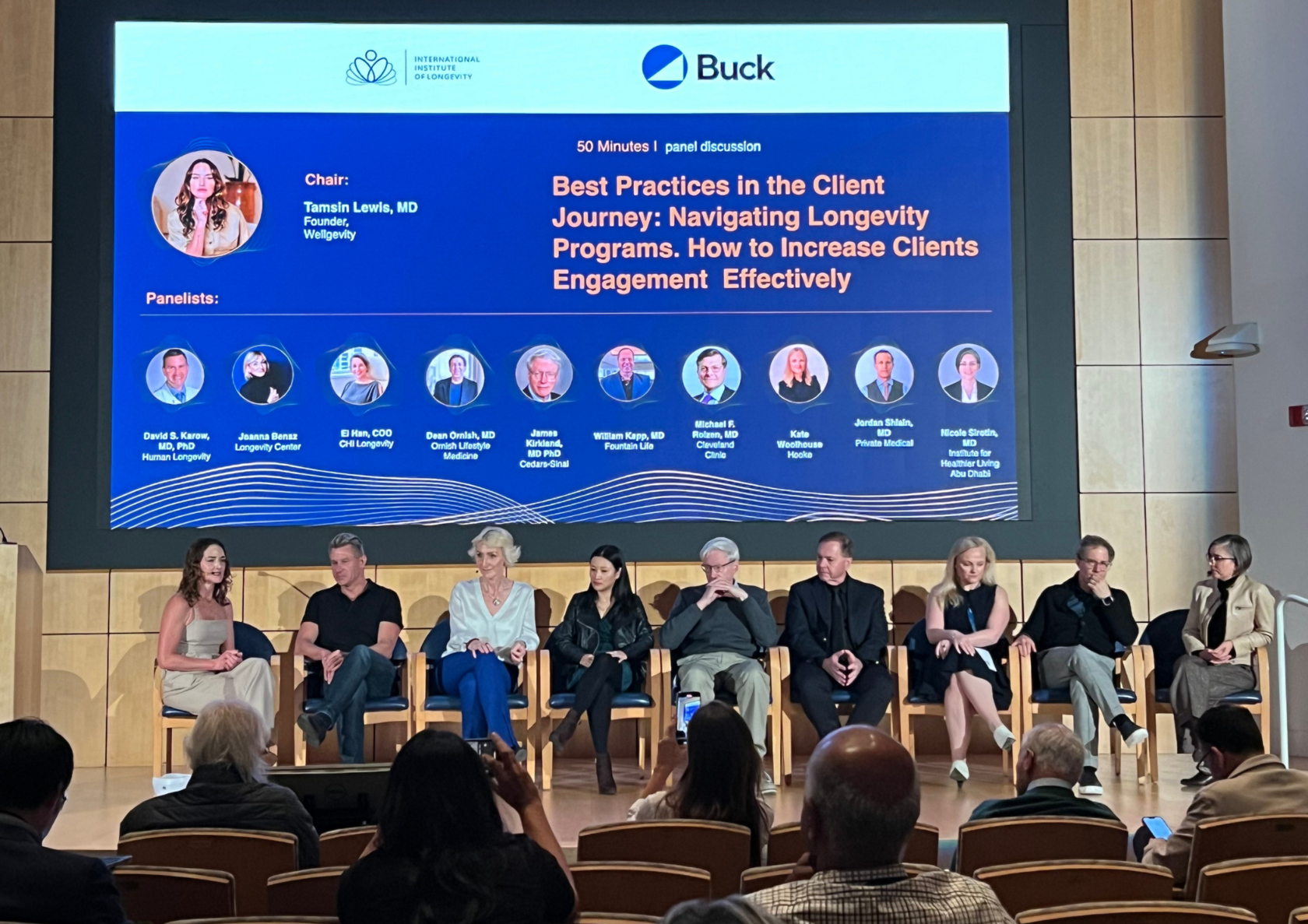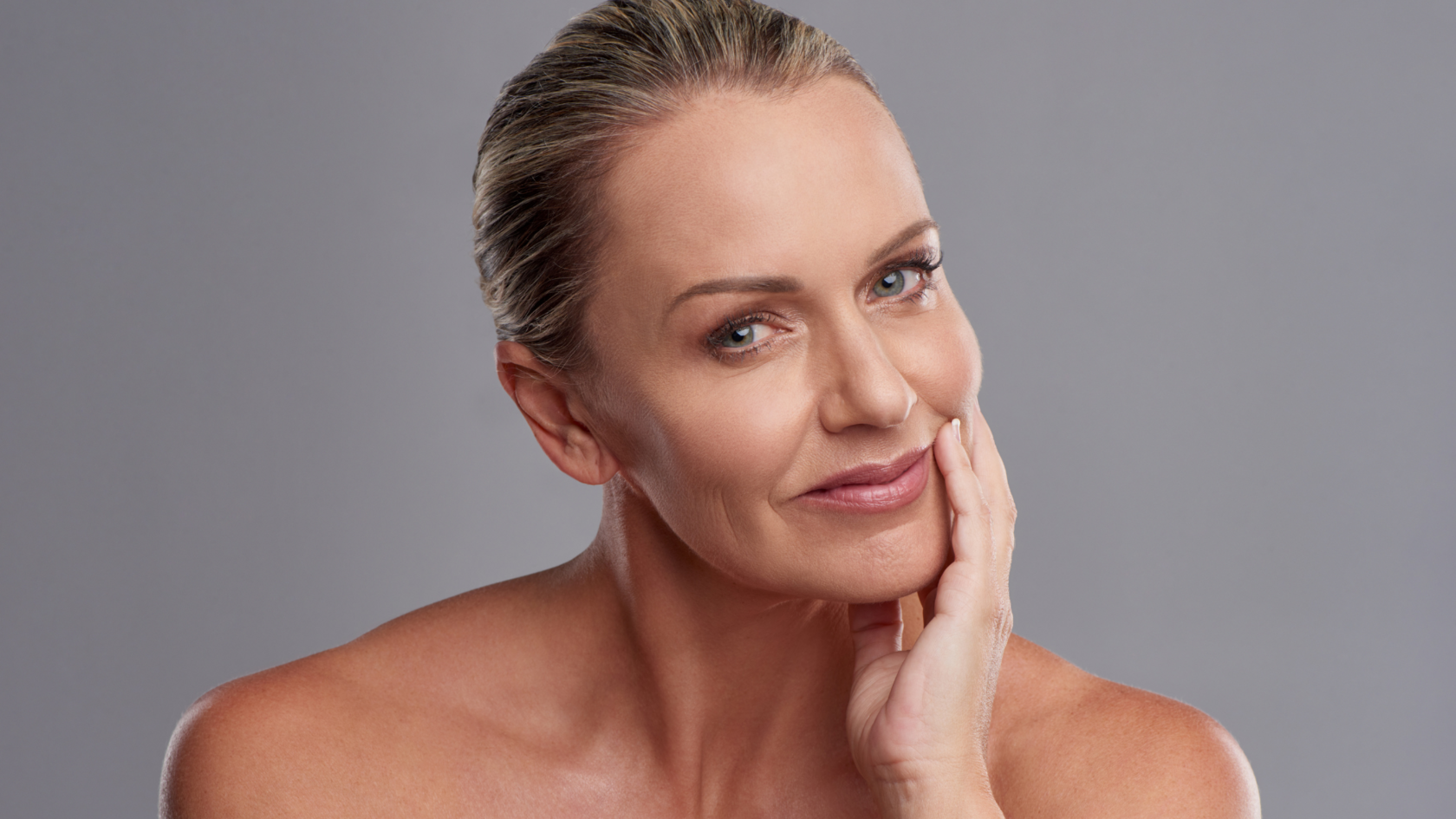The intersection of science, technology, and beauty is where the future of longevity is being written. At the Longevity Clinics Roundtable organized by Eric Verdin and held at the renowned Buck Institute for Aging Research, the world’s top minds in longevity medicine came together to explore how artificial intelligence (AI) is rewriting the rules of aging.
The theme was clear: AI is the next frontier in the longevity revolution. From personalized healthcare to precision diagnostics, artificial intelligence is transforming how we approach aging, disease prevention, and beauty.
The AI Promise in Longevity Medicine
Dr. Peter Diamandis noted that although AI grew by Moore’s law (2x every year) before, it has now reached a point where it is growing more than 10x every single year.
“AI is the reason why we’re in the midst of the healtspan revolution” - Peter Diamandis
Dr. Mary Lou Jepson of Openwater demonstrated how AI is helping address complex diseases like glioblastoma using ultrasound and infrared imaging, showcasing the vast potential of machine learning in both diagnostics and treatment.**
This revolution is about treating risk, not disease—targeting biological age as the most significant modifiable factor in health, as David Karow from Human Longevity pointed out.
Key Insights from the Conference
- Precision medicine: According to the conference survey, 71% of clinics want better client flow, and many are turning to AI-driven software to solve this challenge. However, there’s a critical need for better software tools tailored to longevity care.
- Wearables and AI integration: Many longevity clinics are already incorporating wearables to collect real-time health data, which AI then analyzes to craft personalized interventions.
- Data-driven insights: The use of multimodal datasets—combining blood biomarkers, genetic profiles, and microbiome data—is setting a new standard in care. AI’s ability to analyze this complexity is unparalleled.
AI Meets Beauty
One of the most exciting trends discussed at the conference was the shift from reactive to proactive health interventions. This is precisely what Haut.AI offers: tools that analyze skin health in real-time, providing users with hyper-personalized recommendations that evolve with their unique biology.
- Advanced AI Models for Skin Analysis: By using cutting-edge computer vision and machine learning algorithms, we can detect minute changes in the skin, such as inflammation or early signs of aging, long before they are visible to the naked eye.
- Merging Beauty with Longevity Science: As Dr. Liv noted in her session on skin longevity, “you have the power to change - it starts with your skin.” Skincare plays a critical role in overall health. By reducing cytokines and inflammatory markers in the skin, we’re contributing to improved healthspan outcomes.
- Global Standards and Personalized Care: One of the conference’s recurring themes was the need for international standards in longevity care. Haut.AI supports this need by offering tools that work across ethnicities and geographies, ensuring everyone has access to tailored solutions for their skin health.

The Future of AI in Longevity and Beauty
The insights shared by researchers like Dr. Liv and organizations like the Longevity Institute underscore how AI is poised to reshape our approach to aging. Whether it’s identifying biological age using methylation clocks or using fasting-mimicking diets to reverse aging markers, the possibilities are only growing.
What does this mean specifically for AI in longevity and beauty? Considering that fast movement towards personalization of healthcare, we project there to be an additional emphasis on tailored solutions in the beauty space too. Wearable device use as been on the rise in longevity, and may, in the future, be used for continuous skin diagnosis too.
As AI becomes more widely integrated into the longevity space, we project that dermatological clinics focused on skin rejuvenation and anti-aging will be interested in AI-powered skin diagnostics tools for their practices, to achieve the highest quality outcomes with their clients. Moreover, training AI is a challenging task, considering the vast amount of data required for high prediction accuracy. Therefore, we may be seeing a rise in skin-dataset demand, as both beauty and longevity organizations move towards a more digitalized approach.
As the longevity field progresses, we believe that beauty and health will become inseparable.
The Longevity Conference reminded us of one profound truth: 93% of how we age is determined by our environment and lifestyle. With AI we now have the power to take better control of our health and beauty.






